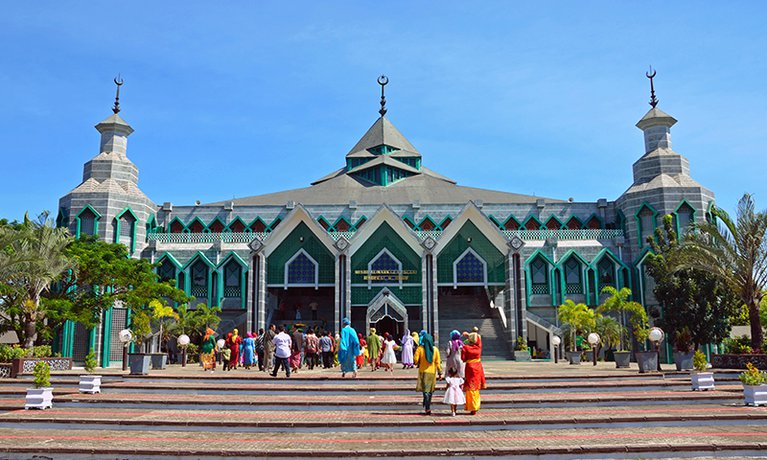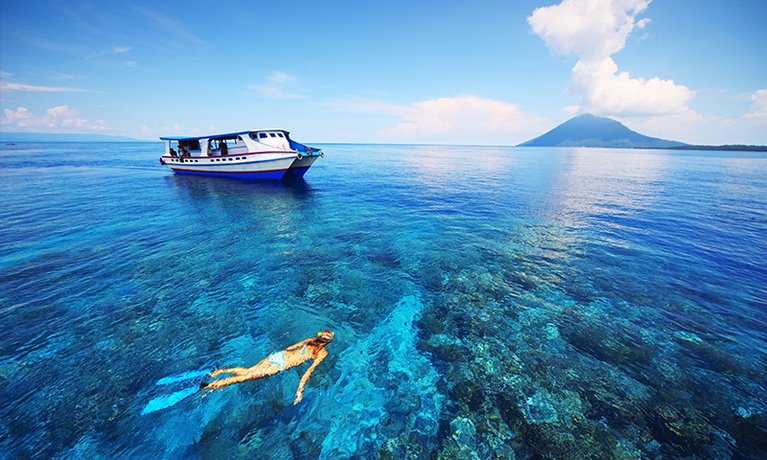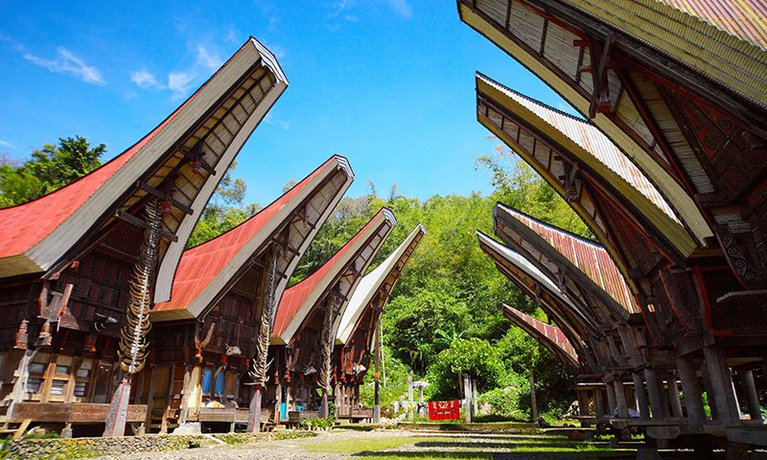
Sulawesi sits centrally within the Indonesian archipelago, with its four protruding arms reaching out in all directions, creating an intriguing outline between the Celebes, Java and Banda Seas. Owing to this – no place in Sulawesi is more than 100km from the sea. This great island has so much to offer the inquisitive traveler, with distinctive unaltered cultures, under-explored mountains, bewildering ceremonies and world class diving locations. The land of the Bugis and unique culture of Tana Toraja in Southern Sulawesi is as colorful as the tropical wildlife found within its thick jungles.
The beauty of Sulawesi is reflected in its people who combine magic with religious beliefs and mysticism – though always with a smile, welcoming visitors to join their ceremonies. A fascinating blend of cultures and habits developed here over time, amidst a setting of beautiful scenery, quirky architecture and vibrant festivals.

The capital of South Sulawesi, Makassar is well connected with daily flights to Singapore, Malaysia and its surrounding islands. An ever growing metropolis, it has all the traits of a major city yet, maintains a small town-like atmosphere, with street vendors along the waterfront and friendly locals ambling between places. Fort Rotterdam, an ancient Dutch fortress from the colonial days was once a Gowanese fort and an impressive remnant open to explore.

While Makasar is the gateway to the south, Manado is the largest city and main gateway to Northern Sulawesi, usually entered by plane. A friendly city with an abundance of hospitable places to dine and stay overnight, Manado is also home to a vibrant China Town with a Chinese temple built during the Qing Dynasty. Many visitors simply stay overnight before moving into central Sulawesi – but there is plenty to keep the traveler occupied during this time.

Approximately 250km north of Makassar, the land of the Bugis ends and a steep series of mountains marks the beginning of Tana Toraja’s highlands. The land here is marked by sweeping valleys and hills, spread across the central highlands and widely known as a place to witness elaborate funeral ceremonies and festivals that last up to a week, when ritual dances and buffalo fights form part of the celebration. Traditional Tongkonan houses can also be seen and explored here. Ornate and intricately decorated, their upward sloping roofs form the center for many rites and daily functions.